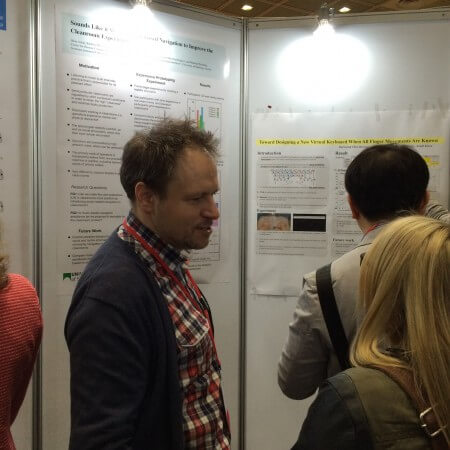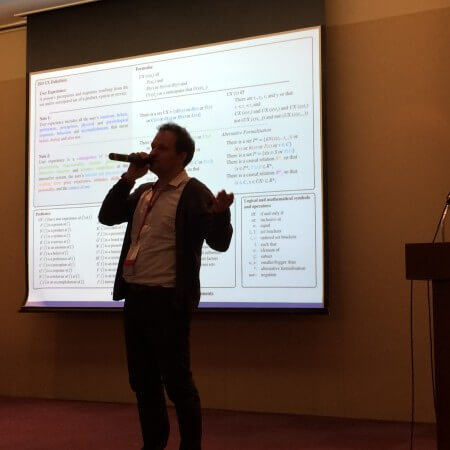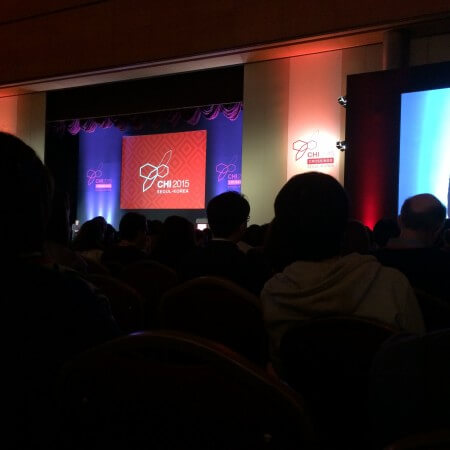At this year’s Alpbach Technology Symposium, Manfred Tscheligi again chaired a breakout session on “Innovation by Making: Paradigm Shifts and New Innovation Cultures“ (coordinated by Verena Fuchsberger). The breakout session was a follow-up to several previous events that the Center for HCI organised on fabrication, i.e., a workshop at Critical Alternatives 2015, an expert summit in Salzburg in autumn 2015 on Rethinking Technology Innovation, and a 2016 CHI workshop.
The breakout session took place in the afternoon of August 26, 2016, starting with an introductory statement by Brigitta Pallauf, President of Salzburg’s Regional Parliament. The subsequent sessions provided a platform to intensively discuss the role of making and (industrial) production for innovation. Six key experts provide impulse statements on their understanding and vision of innovation:
- Georg BAUER (Vice President Engineering, STRATEC Consumables GmbH, Salzburg)
- Jana KOLAR (Executive Director CERIC-ERIC; EIT, Governing Board Member; ERA Council Forum Austria, Member)
- Günter LEPPERDINGER (Professor, Department of Cell Biology and Physiology, University of Salzburg)
- Silvia LINDTNER (Assistant Professor, School of Information, University of Michigan, Ann Arbor/Michigan)
- Gerfried STOCKER (Artistic Director, Ars Electronica Linz GmbH, Linz)
- Martin ZAUNER (Global Product Manager Digitalisation, Palfinger AG, Bergheim)
Summary of the breakout session:
The breakout session was opened by Manfred Tscheligi (University of Salzburg, Austria), who, after welcoming the speakers and participants, handed over to Brigitta Pallauf (President of Salzburg’s Regional Parliament) for an introductory statement. Therein, she emphasized that innovation is key to social and economic growth and wellbeing. In Salzburg, government, research, and industry aim to collaborate to be at the forefront of innovation, including support for makers and maker communities. After this introductory statement, Manfred Tscheligi gave an overview of the topic by depicting different dimensions of fabrication. These dimensions were identified in previous events organized by the Center for HCI (University of Salzburg), and provided the starting points for the breakout session.
The first talk session focused on “The Art of Innovation – Making with Technology”. First, Günter Lepperdinger (University of Salzburg, Austria) talked about the biological notion of making, and what this notion tells us about processes of making. For instance, our understanding of market places may be complemented by considering them as Agoras, i.e., places of meaning, of exchange, of working together. Afterwards, Jana Kolar (CERIC-ERIC; EIT; ERA Council Forum Austria) discussed the role of personal fabrication in innovation processes, arguing that European innovation systems need to change to allow novel forms of innovation, e.g., by supporting makers, by creating business models and ecosystems that allow fablabs to grow, etc. The third speaker of this session, Gerfried Stocker (Ars Electronica Linz GmbH, Linz, Austria), reflected on what makers are and their impact on how we understand and structure our world in terms of innovation and communal life. Provocatively, he asks why makers are hyped nowadays (a notion that changed tremendously in the past few decades) both in industry and from policy, questioning hopes and assumptions that everyone can be a maker and propel (economic) innovation.
The discussion that followed this first set of impulse talks addressed how we can establish and maintain cooperation for innovation, such as allowing for reciprocity and different goals / purposes of making to coexist. Further, current ways of dealing with innovations have been discussed, e.g., whether the current patent system is beneficial or outdated. Further, relations between open source and commercialization have been discussed, and how they both contribute to innovation, economy, and societal development. Harvesting creativity by integrating different expertise and practices seems to be crucial, requiring novel forms of leadership, strategies of HR, policies, etc.
The second session addressed “Participation in Innovation – Making & Hacking Products”. The first speaker of this session, Georg Bauer (STRATEC Consumables GmbH, Salzburg, Austria), illustrated how the Medical Device Industries deal with innovation. The MedTech industry is very much driven by SMEs, who are challenged by the need to create links between specialists in order to quickly create meaningful products. Martin Zauner (Palfinger AG, Bergheim, Austria) then followed by reflecting on the role of making within established industries. Cultural changes (e.g., problem solving relying on digital sources) combined with the complexity of products such as cranes require intelligent, smart products in future. It is not about making the production smart, but about smart products. Finally, Silvia Lindtner (University of Michigan, US) talked about her experiences regarding making and hacking in China that she gathered during extensive fieldwork in Asia, especially in Shenzhen, where novel forms of innovation evolve that complement the mass production ecosystem it was known for for a long time.
The subsequent discussion was focusing, for instance, on regulations that influence production. Innovation processes may benefit from thinking without regulations in mind. Only as soon as an idea is becoming to be a product, regulations come into play. Regulations are needed, though they are different internationally, with different narratives attached to them (e.g., Asia versus Europe versus US). What is the European way of innovation? How can Chinese models inspire Europe’s way of innovation without copying them, without neglecting its traditions? Therefore, it is essential to understand different ways of production and innovation across borders, including awareness for precarious work situation and equality (e.g., ignoring the sometimes invisible role of women). The question on whether the current movements indicate an actual paradigm shift has been discussed controversially, since the outcome of a potential shift is still unclear. However, there was agreement that all areas of living will be affected by innovation and production changes, propelled forward by digital technologies and the potentially unlimited number of products and services that might be created in future.
Prior to the breakout session, Silvia Lindtner was interviewed by science.orf.at (in German):
“Was unterscheidet Making nun vom Basteln?
Manche würden sagen – nichts. Es wird durchaus kontrovers diskutiert, wo man die Grenze zieht und warum nicht auch Häkeln, Kochen oder Fabrikarbeit darunter eingeordnet werden.
De facto sind es aber eher technologische Bastelprojekte, wie das Entwickeln einer Hardware für einen Roboter oder 3-D-Drucker, die von Unternehmen oder Regierungen explizit gefördert werden. Diese Definition hat sich nun eher durchgesetzt.”


